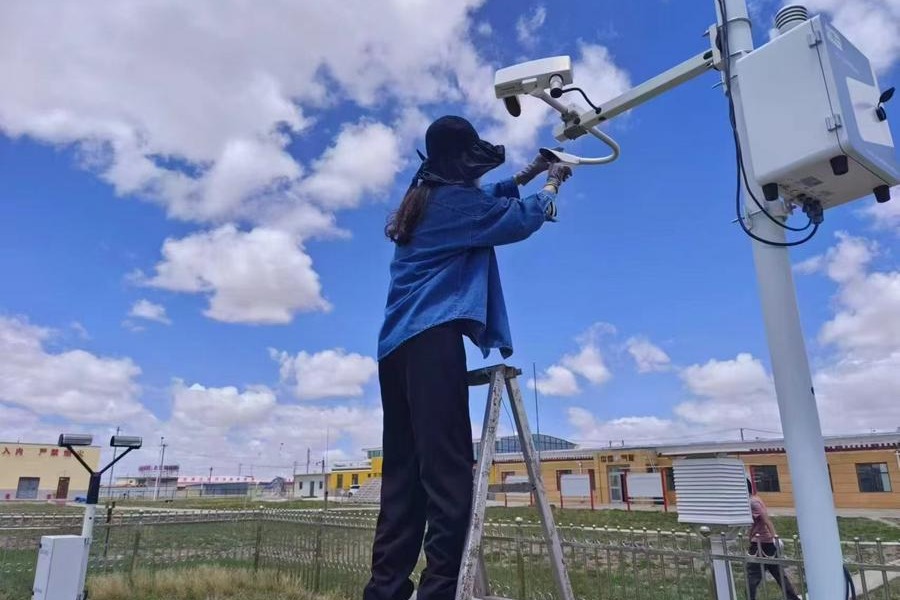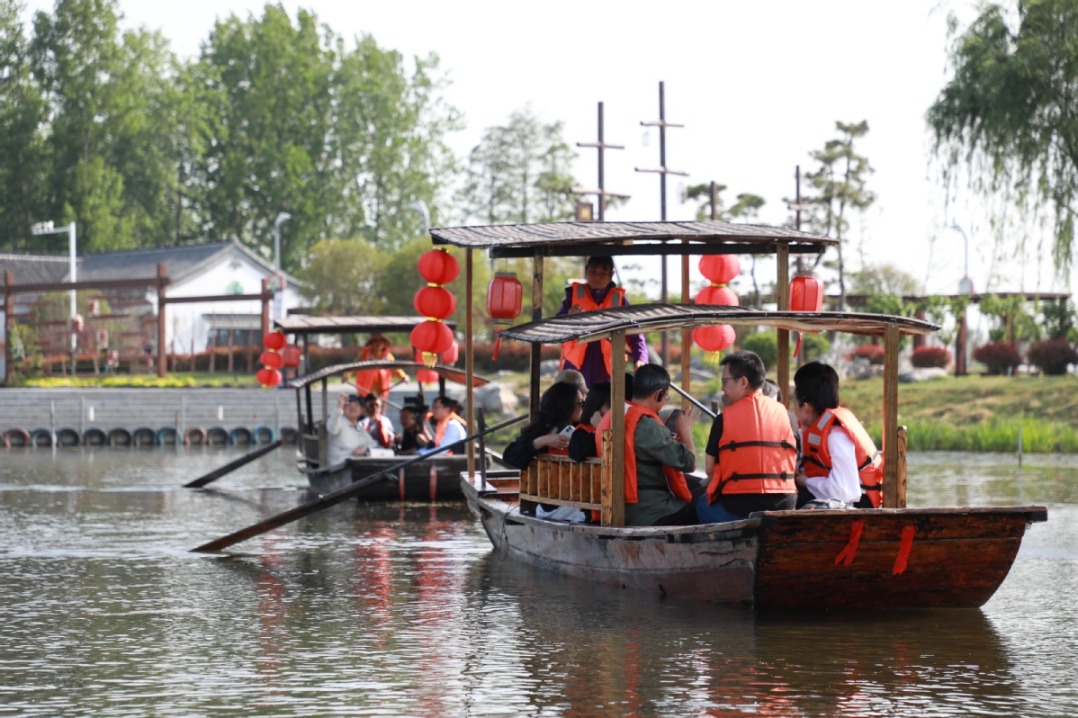Hong Kong, Zhejiang strengthen cooperation
Two sides to capitalize on each other's expertise to collaborate on tech, trade

Cooperation between Zhejiang province and Hong Kong will enable the two regions to join forces and seize major opportunities brought by China's high-quality development and high-level opening-up, officials said during the first high-level meeting and plenary session of the Hong Kong-Zhejiang Cooperation Conference held on Thursday in Hangzhou.
John Lee Ka-chiu, chief executive of the Hong Kong Special Administrative Region, and Wang Hao, Party chief of Zhejiang, attended the meeting and witnessed the launch of a new cooperation mechanism.
The two governments identified 13 key areas of cooperation encompassing 51 projects. Four cooperation agreements were signed, covering fields such as technological innovation, housing, economic and trade cooperation and youth development, further expanding bilateral exchanges and collaboration.
Zhejiang, a major province in the Yangtze River Delta, is known for its robust economy and technological innovation, while Hong Kong is a core city in the Guangdong-Hong Kong-Macao Greater Bay Area.
"Zhejiang and Hong Kong share deep-rooted ties, like members of one family. Over the years, our cooperation across various fields has grown stronger and more practical," Wang said.
Prior to the conference on Tuesday, Lee led a Hong Kong delegation to Zhejiang. While in Hangzhou, they visited research institutions, enterprises and hospitals to gain insights into the transformation and application of technological innovation outcomes.
On Wednesday, Lee visited Brain-Co and Unitree Robotics. Representatives from six of Hangzhou's leading startups — collectively known as the "six little dragons" — briefed the delegation on their progress in cutting-edge fields such as large language models, robotics, artificial intelligence, game development and brain-computer interfaces.
Lee showed particular interest in Hangzhou's talent policies. He noted that in the face of complex geopolitical challenges, both Hong Kong and Hangzhou are committed to developing innovative technology industries. With several universities in Hong Kong ranked among the world's top 100, enhanced cooperation between the two regions could drive breakthroughs contributing to national development, he said.
From April 17 to 20, more than 100 project teams from universities in Hong Kong and Macao gathered in Hangzhou for the "Zhejiang Tour for Youth from Hong Kong and Macao", which included site visits, on-site promotions, project roadshows and matchmaking activities.
During the tour, young people engaged in exchanges and cooperation with Zhejiang's tech platforms, industrial bases, leading enterprises and investment institutions, working to integrate technological and industrial innovation across Zhejiang, Hong Kong and Macao.
"Innovation and technology are the future. Hong Kong will continue to leverage its unique role in linking China with the world, complementing the strengths of mainland provinces and cities, and jointly opening new chapters of integrated innovation," Lee said in a video message to the participants, encouraging them to contribute to China's high-quality development.
"The Hong Kong delegation brought more than 160 people and over 100 projects, and more than 50 percent of participants and projects came from our university. These participants include PhD and postdoctoral students, assistant professors and even associate professors, many of whom are also founders of startups. Their projects span high-tech fields such as biomedicine, intelligent manufacturing and AI," said Laura Lo, associate vice-president of Hong Kong Polytechnic University.
"Zhejiang's strength lies in its strong government support, well-developed infrastructure and vibrant market economy. These factors create an ideal environment for startups. I've gained a lot of inspiration from exchanges with leading enterprises here," said Li Xingyi, a student from the Hong Kong University of Science and Technology.
"Over the past 20 years, Zhejiang has developed rapidly. Now it takes the lead in practical, ground-level innovation. Meanwhile, Hong Kong has a solid foundation with its open information and international environment. I look forward to more 'dream ventures' — companies jointly founded by talents from both regions. This way, they can be born international and grow globally from Zhejiang without facing steep learning curves," said Fang Yi, chairman and general manager of Merit Interactive Co, a Zhejiang-based enterprise.
On Friday, Lee and his delegation attended the "Hong Kong Investment Promotion Conference — Zhejiang (Ningbo) Forum" in Ningbo.
Lee said that despite recent disruptions in the global economy, China's vast market offers certainty for global investors, and the country's long-term economic growth momentum is unstoppable.
Last year, the Hong Kong SAR government and the Hong Kong Trade Development Council established a high-value supply chain service mechanism, helping mainland enterprises set up international or regional headquarters in Hong Kong to manage offshore trade and supply chains. Lee expressed his hope that more companies interested in expanding overseas can use Hong Kong as a platform to create new business opportunities.
Hong Kong is currently Zhejiang's largest source of outside investment, its largest service trade partner, and the second-largest destination for Zhejiang's investment outside the mainland.
Last year, trade between Zhejiang and Hong Kong reached $8.82 billion, a year-on-year increase of 10.9 percent, with Zhejiang's trade to Hong Kong amounting to $8.44 billion, up 12.4 percent. By the end of last year, Hong Kong had cumulatively invested in 32,199 enterprises in Zhejiang, while Zhejiang had invested in 3,181 enterprises or institutions in Hong Kong.
- Hong Kong, Zhejiang strengthen cooperation
- Fewer young people tying the knot as perceptions of marriage change
- Q1 intl air travel soars to new heights
- New patch may reduce skin damage
- Transport sector to be powered by low-carbon electricity in a decade
- Inner Mongolia puts grazing on hold for 45 days so green shoots can grow





































